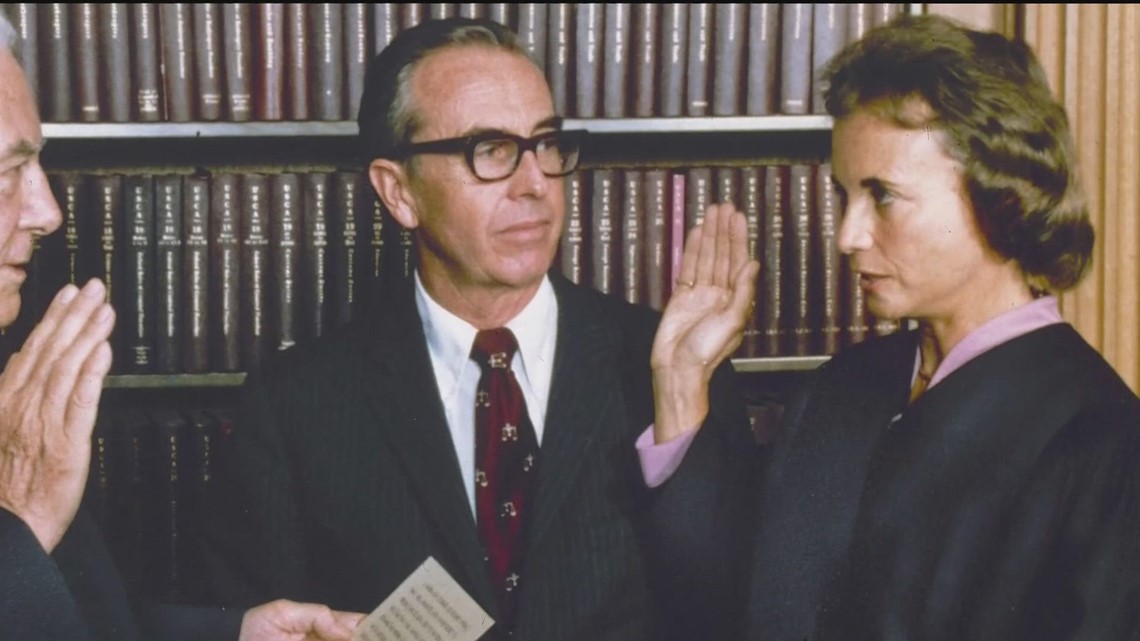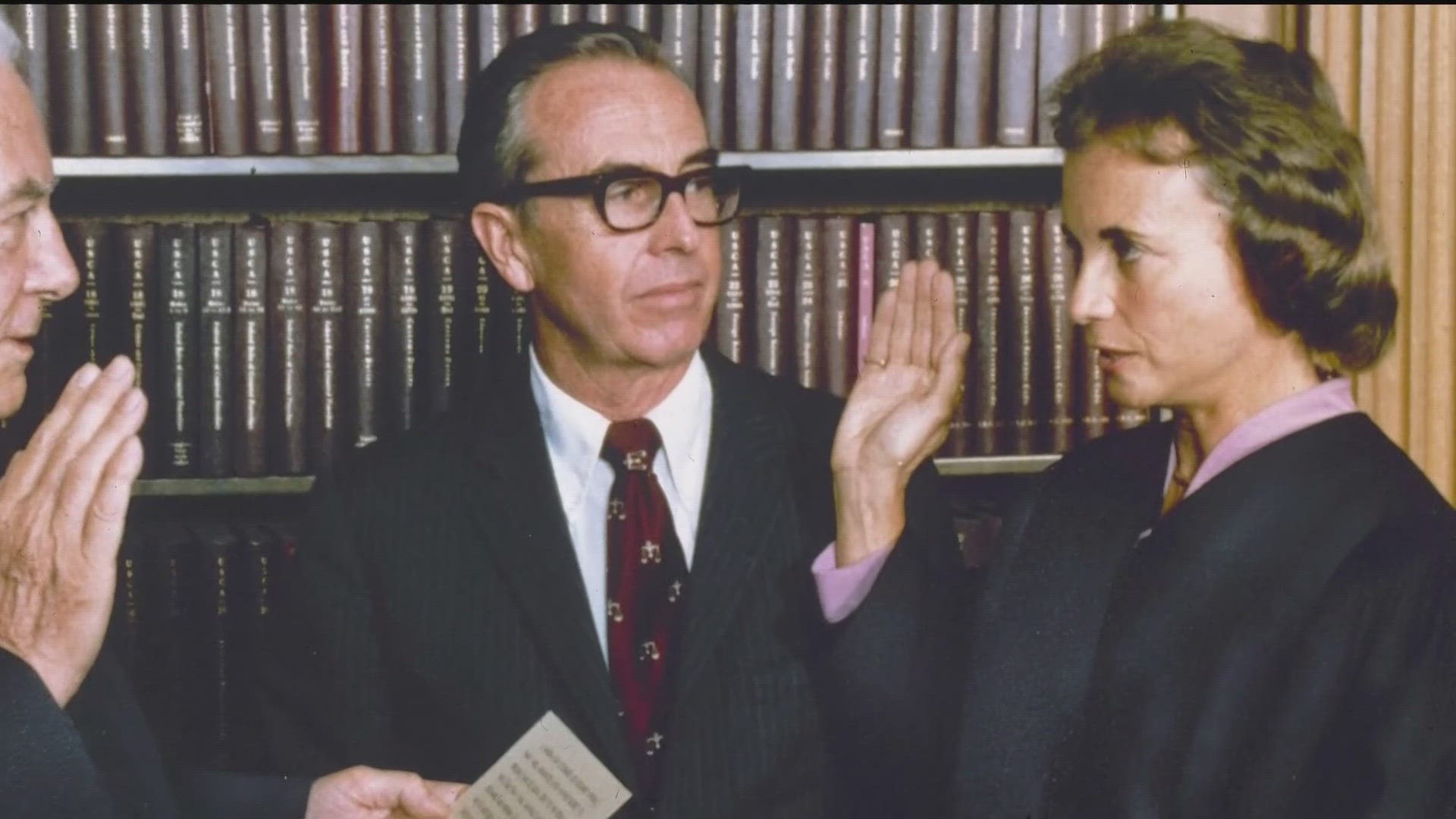ATLANTA — The nation is remembering and honoring retired Supreme Court Justice Sandra Day O’Connor, who died Friday at the age of 93.
Justice O’Connor was the first woman to serve on the Supreme Court. Appointed in 1981 by President Ronald Reagan, she retired in 2006.
And in Atlanta, one of her former law clerks, Alexander Volokh, who is now an Emory Law School professor, said that during those years, O’Connor was the deciding vote on some of the most impactful issues crucial to the American people.
“Her influence during that time is hard to understate,” Professor Volokh said Friday.
People were calling Sandra Day O’Connor the most powerful woman in the United States.
Volokh was Justice O’Connor’s law clerk during the 2005-2006 term, O’Connor’s final term before she retired, and he describes her as warm and kind as a grandmother but tough-minded at work.
“She just cared about everybody,” Volokh said, “just a joy to be around. At the same time, she had a no-nonsense approach to the job.”
Often, O’Connor was the swing vote on the Court.
“There were equal number of people to the left of her as to the right of her” on the Court, Volokh said, “and that means that she was able to dictate the resolution of a lot of cases.”
For example, O’Connor was the deciding vote with the liberals on cases strengthening civil rights affirmative action and environmental protections and upholding Roe vs Wade abortion rights.


And she was the deciding vote with the conservatives on cases upholding school vouchers, California’s “three strikes” law, and in 2000, in Bush vs. Gore, which ended the Florida recount, leading to Bush becoming President.
“For two and a half decades,” Volokh said, “what constitutional law looked like was what Justice O'Connor believed.”
And O’Connor believed in Federalism, “the idea that the states have just as much dignity as the federal government and that in certain areas the states actually have independence. And that was very important in crafting the Federalist revolution of the 1990s.”
Now, the conservative majority on the Court is supporting O’Connor’s opinions that they like and overturning ones they don’t like.
“So her moderate position on abortion has been overruled. Her moderate position on affirmative action has been overruled. And on the other hand, some of her decisions have had staying power. She had a lot of influence in her time. But, inevitably, in new times, there’s a new Court and there will be new decisions.”
O’Connor’s legacy, Volokh said, is assured as the first woman on the Supreme Court who remains one of the most influential women, and jurists, in American history.
“She'll stand out in history, number one because she was the first woman justice. Number two, because of her important role in the federalism revolution and in her individual rights decisions. And number three, because of her distinctive approach, her moderate, pragmatic--not very theoretical, but very guided by strong intuitions—approach to judging.”

